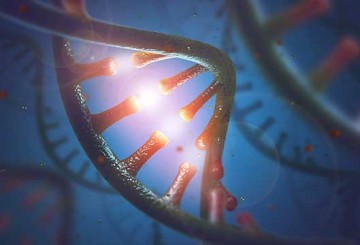Tag: Cell and Developmental Biology
-

Investigating the ‘Glue’ that Holds Cells Together
Northwestern Medicine investigators have uncovered new insights into how intercellular “glue” functions to enable interactions between cells, as detailed in a study published in Nature Communications.
-

Novel Intercellular Mechanisms May Inform Treatments for Congenital Spinal Defects
Northwestern Medicine investigators have identified novel mechanisms regulating the development of the spinal column during embryonic development, findings that could inform new treatments for congenital scoliosis and other related birth defects.
-

Novel Mechanisms Support Cellular Adhesion and Tissue Repair
Northwestern Medicine investigators have discovered new mechanisms underlying cellular adhesion and repair, findings that could inform the development of new therapeutics that boost cellular repair after tissue injury, according to a recent study published in the Journal of Cell Biology.
-

Exploring Genetic Sex Differences in Alzheimer’s
An international team of scientists has uncovered new insights into how previously unstudied X chromosomes in women may contribute to Alzheimer’s Disease risk, according to a multicenter study published in the journal Molecular Psychiatry.
-

New Insights into Spinal Column Development
Northwestern Medicine scientists have uncovered new details about how the spinal column forms in developing vertebrates, according to a study published in Developmental Cell.
-

COVID-19 Hitches a Ride on Mucus to Spread Deep Into Lungs
The COVID-19 virus spreads via mucus once inside an infected airway, according to a Northwestern Medicine study published in Nature Communications.
-

Non-Neuron Brain Cells Produce a Third of Amyloid Plaque in Alzheimer’s Disease
An international team of investigators have discovered that oligodendrocytes contribute approximately one-third of plaque formation alongside neurons in mouse models of Alzheimer’s disease, according to a recent study published in Nature Neuroscience.
-

Understanding Epigenetic Control of Antibody Responses
Northwestern Medicine investigators have uncovered how antibody responses are regulated by epigenetic factors commonly mutated in cancers, according to a study published in Nature Immunology.
-

Improving Measurement of Gene Expression in Single Cells
Northwestern Medicine scientists have developed a new technique to identify individual cells for RNA sequencing, which will empower scientists to gather more accurate and precise scientific data, according to details published in Cell Genomics.
-

Goyal and Kennedy Named 2024 Pew Scholars
Yogesh Goyal, PhD, and Ann Kennedy, PhD, have been named 2024 Pew Scholars by The Pew Charitable Trusts, which recognizes promising early-career investigators whose research will accelerate discovery and translation in the biomedical sciences.






